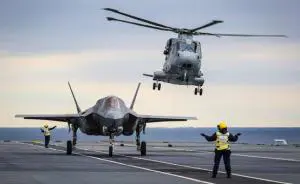Australia's military will be more readily deployed to respond to "terrorist incidents" on home soil under proposed changes to laws announced by the government on Monday.
Australian Prime Minister Malcolm Turnbull said state and territory police forces would remain as the first response to such incidents, but the military would offer support to enhance their capabilities.
Under the proposed law changes, state and territory governments would be able to call for military help at any time after a "terror incident" has been declared. Previously, the military could only be called upon once police concluded they could no longer deal with an incident.
Turnbull said future attacks would likely remain the responsibility of the police but the military could also assist in incidents such as a central Sydney cafe siege in December 2014 in which two hostages were killed.
A coronial inquiry found in May that police failed to respond quickly enough to end the 16-hour siege, which has been described as Australia's deadliest incident inspired by Islamic State extremists. The gunman, who was killed by police, had no direct ties to the militant group.
"In the current threat environment, it is most likely that a terrorist attack will use simple methodologies, a knife, a gun, a vehicle, and the attack itself could be over in minutes," Turnbull told reporters in Sydney.
Australian Prime Minister Malcolm Turnbull talks with Special Operations Command soldiers during a visit to the Australian Army's Holsworthy Barracks located in western Sydney, Australia, July 17, 2017.
"In worse case scenarios, the ADF (Australian Defence Force) has a range of specialist capabilities to resolve complex terrorist incidents, especially protracted sieges or hostage situations," he said.
The Sydney cafe siege and a series of other "lone wolf" attacks have thrown police tactics, and Australia's overall response to potential security incidents, into sharp focus.
Australian police have since changed tactics to become ready to end cases of potential hostage-taking more quickly, and to shoot suspects in "terrorist-related" incidents.
In June, police also began installing concrete bollards in pedestrian thoroughfares in Australia's two largest cities, Sydney and Melbourne, to guard against possible vehicle attacks such as those seen recently in Europe and the United States.
"The key thing we need is the most flexible possible arrangements - the threat's changed very significantly," Justice Minister Michael Keenan told the Australian Broadcasting Corporation on Monday.
Australia is a staunch U.S. ally and has sent troops to fight in Afghanistan and Iraq. It has also been on heightened alert for attacks by home-grown militants returning from fighting in the Middle East.
(REUTERS)
 简体中文
简体中文



